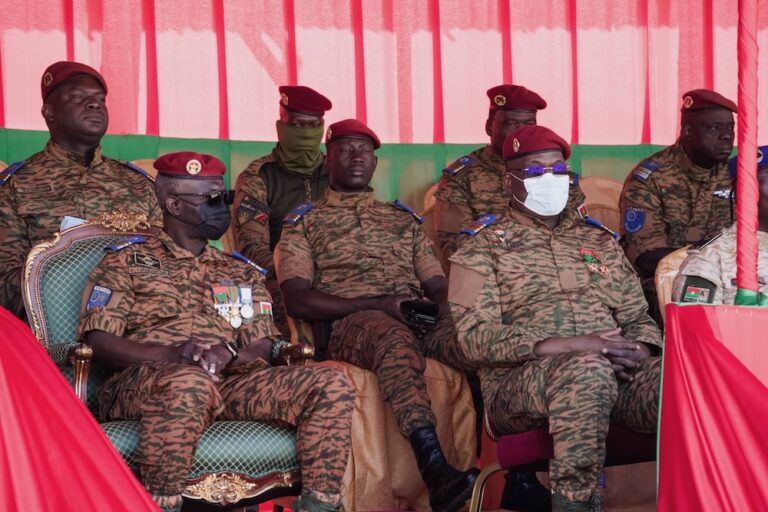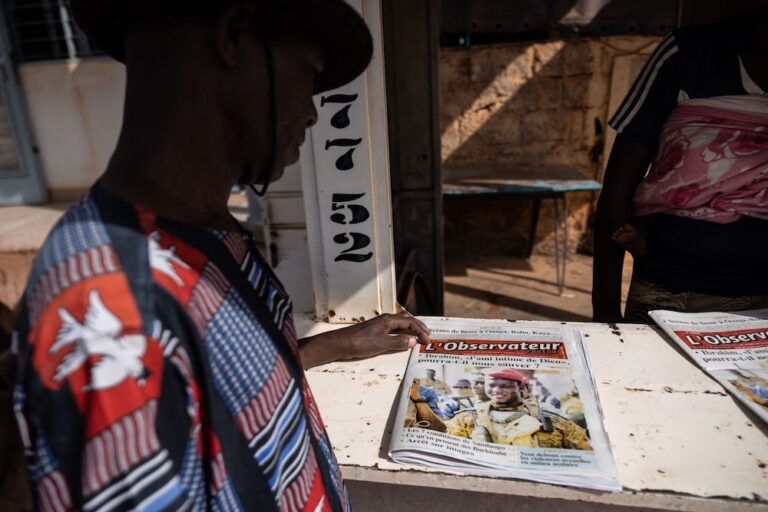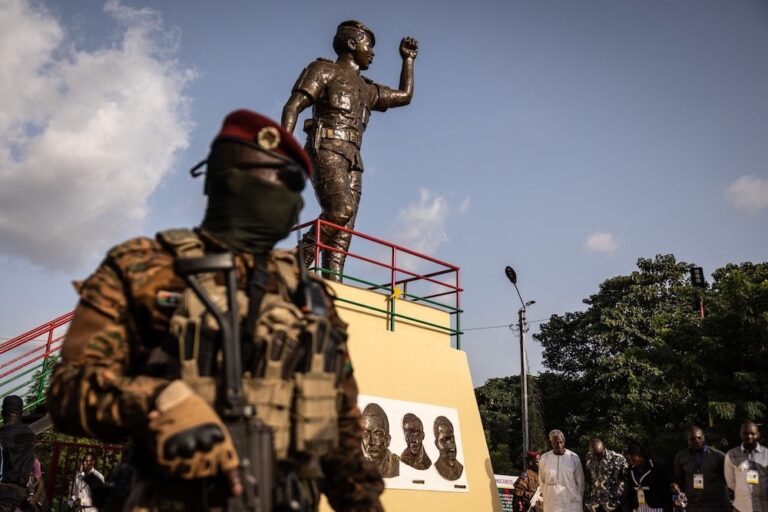Burkina Faso’s Higher Council for Communication's communiqué said public health programmes and programmes of a recreational, sentimental or cultural nature were exempted from the ban "as long as they stayed within their subject."
This statement was originally published on rsf.org on 12 May 2015.
Reporters Without Borders calls on Burkina Faso’s Higher Council for Communication (CSC) to rescind the three-month ban on live radio and TV broadcasts announced last week, which constitutes a grave act of censorship in the run-up to next October’s elections.
When announcing the ban, which took effect on 7 May, the CSC referred to “numerous lapses” but did not go into detail. The CSC communiqué said public health programmes and programmes of a recreational, sentimental or cultural nature were exempted “as long as they stayed within their subject.”
The CSC’s target is clearly political programmes, which now have to be pre-recorded and vetted so that they do not undermine “social cohesion and the success of the forthcoming elections.”
“We call on the CSC to rescind its decision to ban live interactive programmes that allow the public to express its views and to be informed,” Reporters Without Borders programme director Lucie Morillon said. “Although the social climate is fragile in this transitional period, access to on-the-spot reporting is primordial, and live debates and exchanges of views in the run-up to elections are essential and must be able to take place in a spontaneous manner.”
The ban has been widely criticized by media and journalists associations, civil society groups and even some officials. In a joint communiqué yesterday, media and journalists associations condemned the unfairness of a measure that does not distinguish between “media that respect the rules of interactive broadcasts (…) and those that do not respect them at all.”
National Transition Council president Sheriff Sy condemned the ban today and urged the CSC to review it.
After ruling Burkina Faso for 27 years, President Blaise Compaoré was ousted in an uprising on 31 October 2014. A new president and parliament is to be elected in October after a one-year “democratic transition.”
Burkina Faso is ranked 46th out of 180 countries in the 2015 Reporters Without Borders press freedom index.


